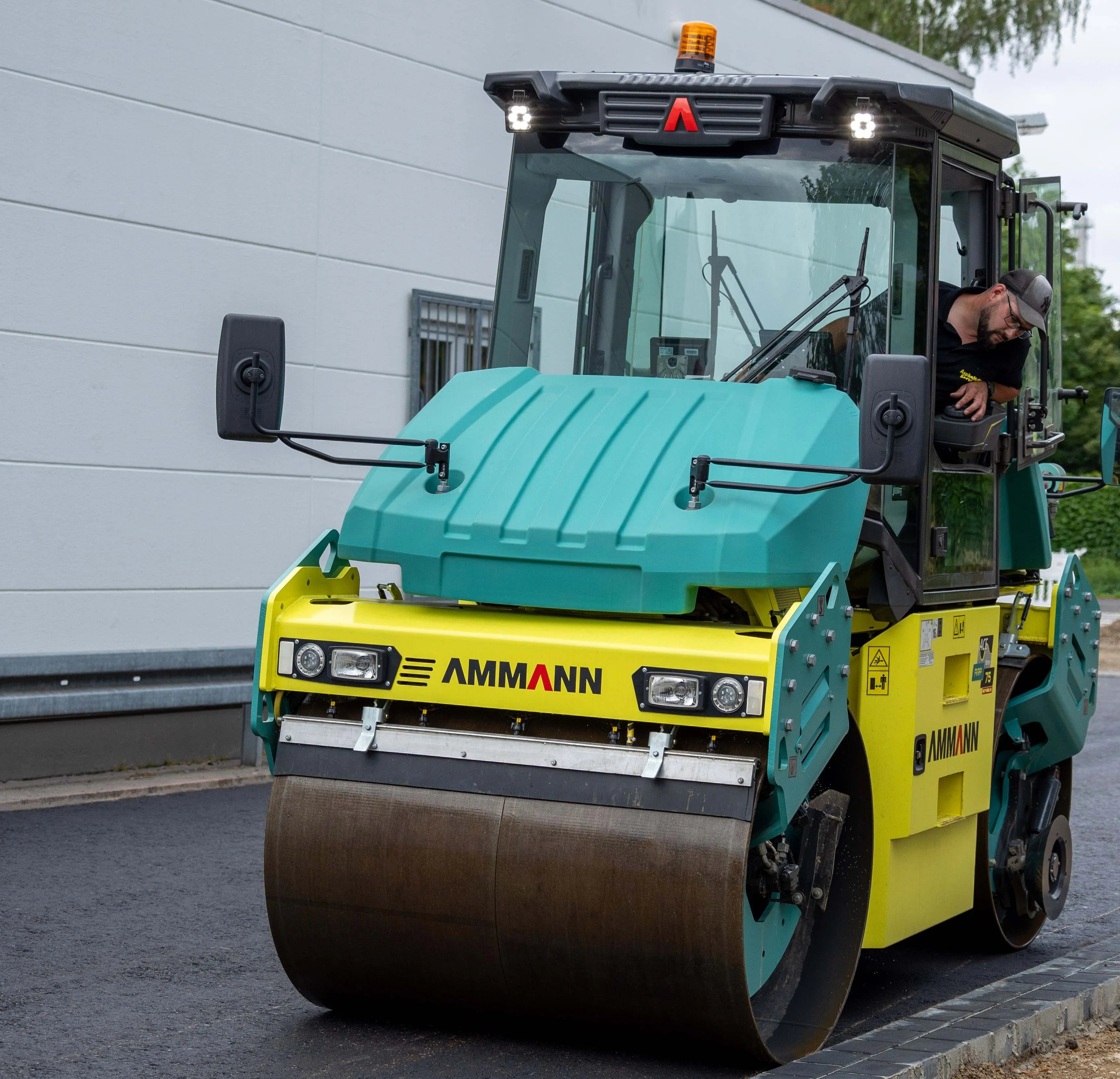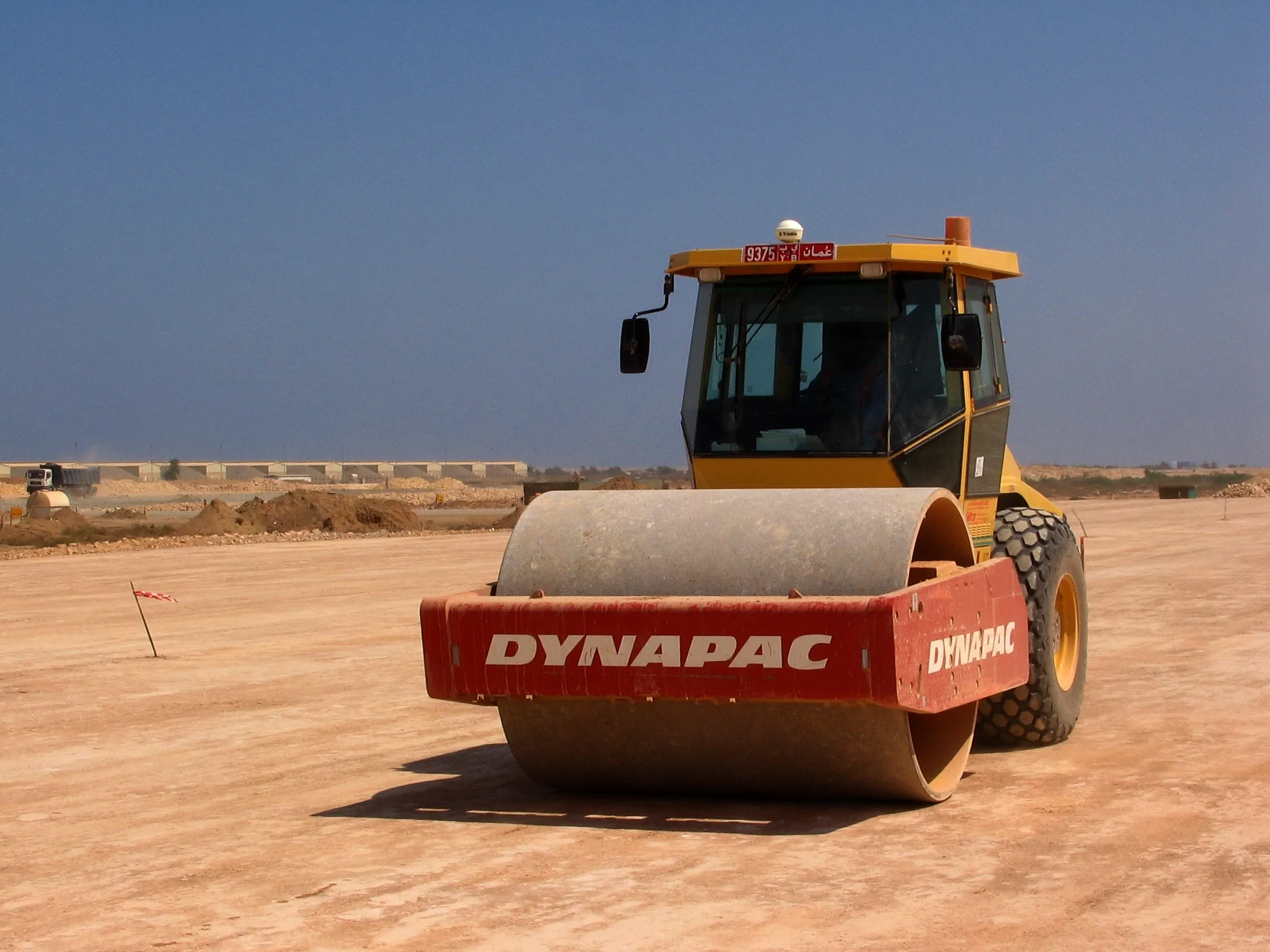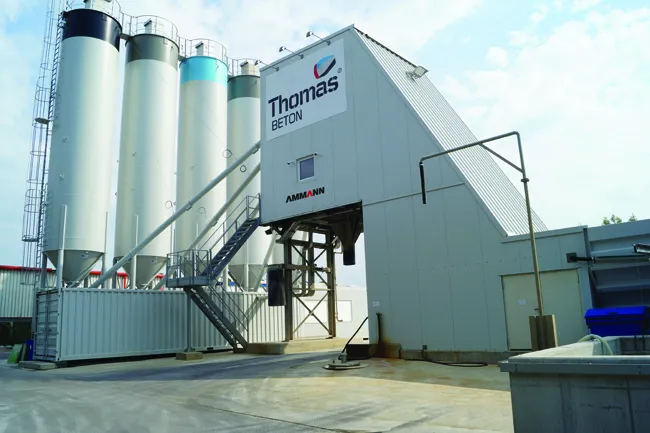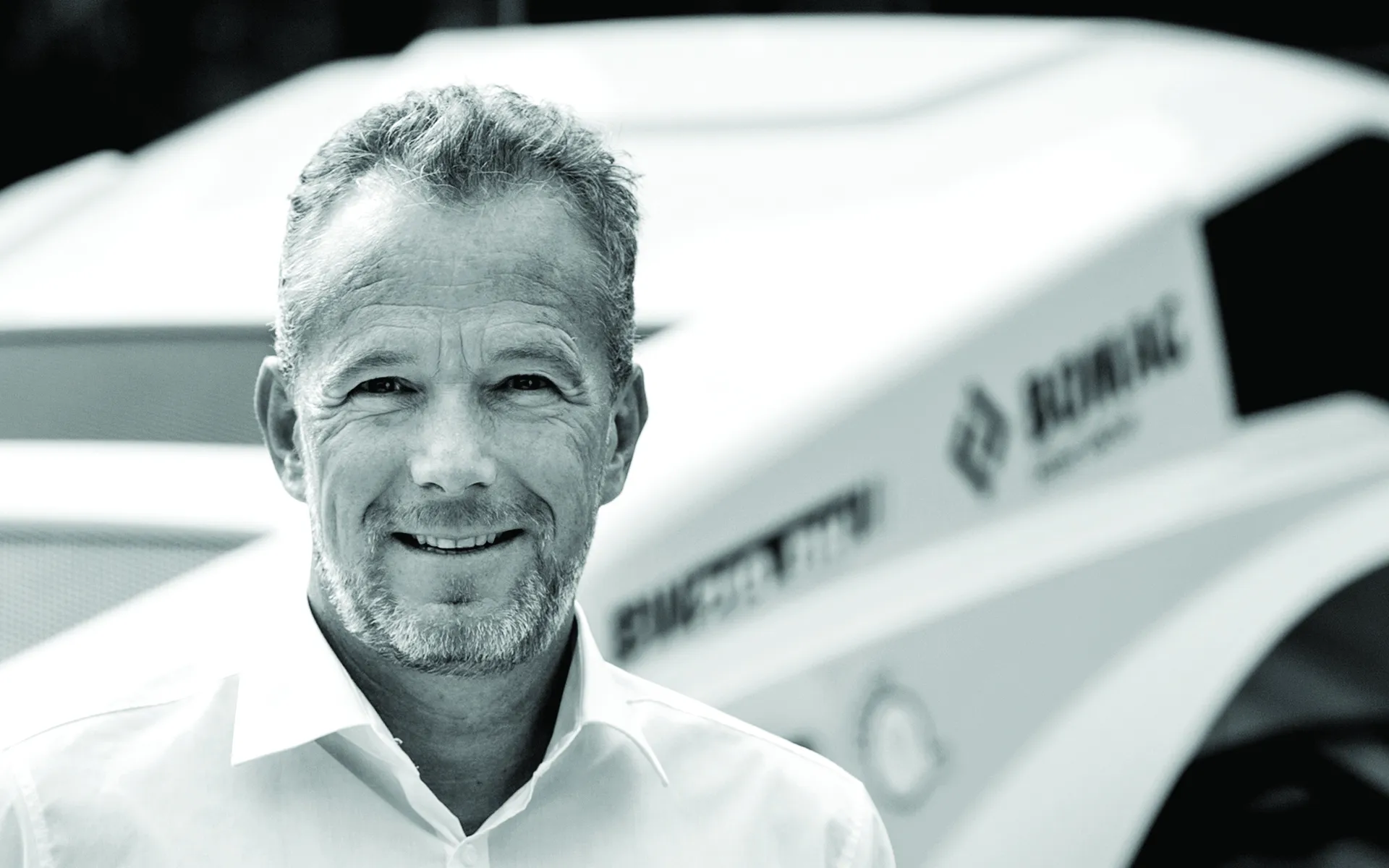
Much of the project required compaction in open spaces where productivity was needed. However, compaction was also needed near the supermarket’s entrance, close to obstacles. That meant the compaction machine had to be to versatile enough to be productive in open spaces as well as being manoeuvrable enough to operate in tight spots.
The base layer of 120mm necessitated deep compaction output – all while negotiating the close spaces. The base layer consisted of warm mix (AC32 TS), so the compaction window was also tight.
The Ammann ARP 75 Pivot-Steer twin drum compactor was able to meet all the requirements of the job however. The machine has an operating weight of 7.4tonnes, as well as the output needed. Standard is a two-stage vibratory system with a multiple range of frequencies that helps operators adjust compaction output.
It offers two frequencies (38-48Hz and 45-55Hz), two amplitude choices (0.68mm and 0.39mm) and two centrifugal options (58-92kN and 47-70kN). These settings ensured the roller brought the output necessary to reach the 120mm depth, yet also could be adjusted when working close to the building.
The Ammann ARP 75 has pivot steering with split drums, enabling precise compaction as well as reducing shear forces. The roller also offers advanced steer-by-wire machine control, which is said to be responsive.
Another handling feature is machine fingertip steering (FTS). This replaces the traditional steering wheel and allows operators to keep both hands on the armrests for improved comfort. An advanced drive lever with smart functions ensured the smooth starts and stops that were useful when paving the parking lot.









